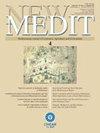Analysis of the Effects of Livestock Market Participation on Food Security and Welfare of Smallholder Farmers in Ethiopia
IF 1.2
4区 经济学
Q3 AGRICULTURAL ECONOMICS & POLICY
引用次数: 1
Abstract
In Ethiopia, where a large proportion of rural households depend on livestock for livelihood, food security remains a significant concern for large portions of the population. The commercialization of the livestock sector is expected to play an important role in stimulating economic growth, reducing poverty and achieving food security. This study evaluates the effect of livestock market participation on household’s food security and welfare using a nationally representative cross-sectional survey data of rural households in Ethiopia. The endogenous switching regression model which accounts for both the selection and endogeneity bias is employed to examine the effect of livestock market participation. The robustness of the results is checked using propensity score matching. The results indicate that participation in livestock market improved food security and welfare of the participating households. Participation in the market also would have increase food security and welfare of non-participants had they decided to participate in the market. Furthermore, in rural areas where alternative income possibilities are scant, livestock market participation has smoothed food consumption by providing income in times of harvest failure or other shocks striking households. However, building a more sustainable market-oriented production system is critical for the improvement of household food security and welfare.牲畜市场参与对埃塞俄比亚小农粮食安全和福利的影响分析
在埃塞俄比亚,很大一部分农村家庭依靠牲畜谋生,粮食安全仍然是大部分人口的一个重大关切。畜牧业的商业化预计将在刺激经济增长、减少贫困和实现粮食安全方面发挥重要作用。本研究利用埃塞俄比亚农村家庭的全国代表性横断面调查数据,评估了牲畜市场参与对家庭粮食安全和福利的影响。采用考虑选择和内生性偏差的内生转换回归模型来检验畜牧市场参与的影响。使用倾向得分匹配来检查结果的稳健性。研究结果表明,参与牲畜市场改善了参与家庭的粮食安全和福利。如果非参与者决定参与市场,参与市场也会增加他们的粮食安全和福利。此外,在替代收入可能性很小的农村地区,牲畜市场的参与通过在歉收或其他冲击家庭的时候提供收入来稳定粮食消费。然而,建立一个更可持续的以市场为导向的生产体系对于改善家庭粮食安全和福利至关重要。
本文章由计算机程序翻译,如有差异,请以英文原文为准。
求助全文
约1分钟内获得全文
求助全文
来源期刊

New Medit
AGRICULTURE, MULTIDISCIPLINARY-
CiteScore
2.00
自引率
30.00%
发文量
31
审稿时长
>12 weeks
期刊介绍:
New Medit is an applied economics journal, with a multidisciplinary approach, aimed at providing insights into the economic and the social transformations of agro-food sector, rural societies as well as local development and bioeconomy in the Mediterranean Basin.
Manuscripts submitted to NEW MEDIT generally should deal with wide-ranging topics that can be extended to other countries where organisational, production and market conditions and the related development policies may emerge at the corporate or regional level.
 求助内容:
求助内容: 应助结果提醒方式:
应助结果提醒方式:


